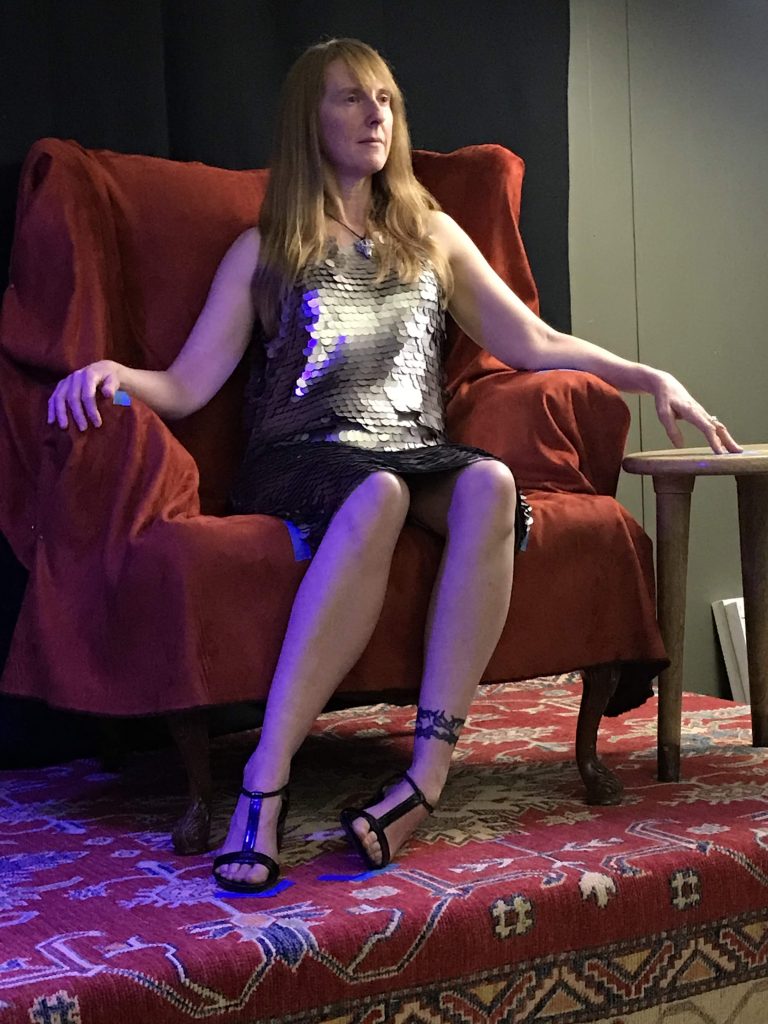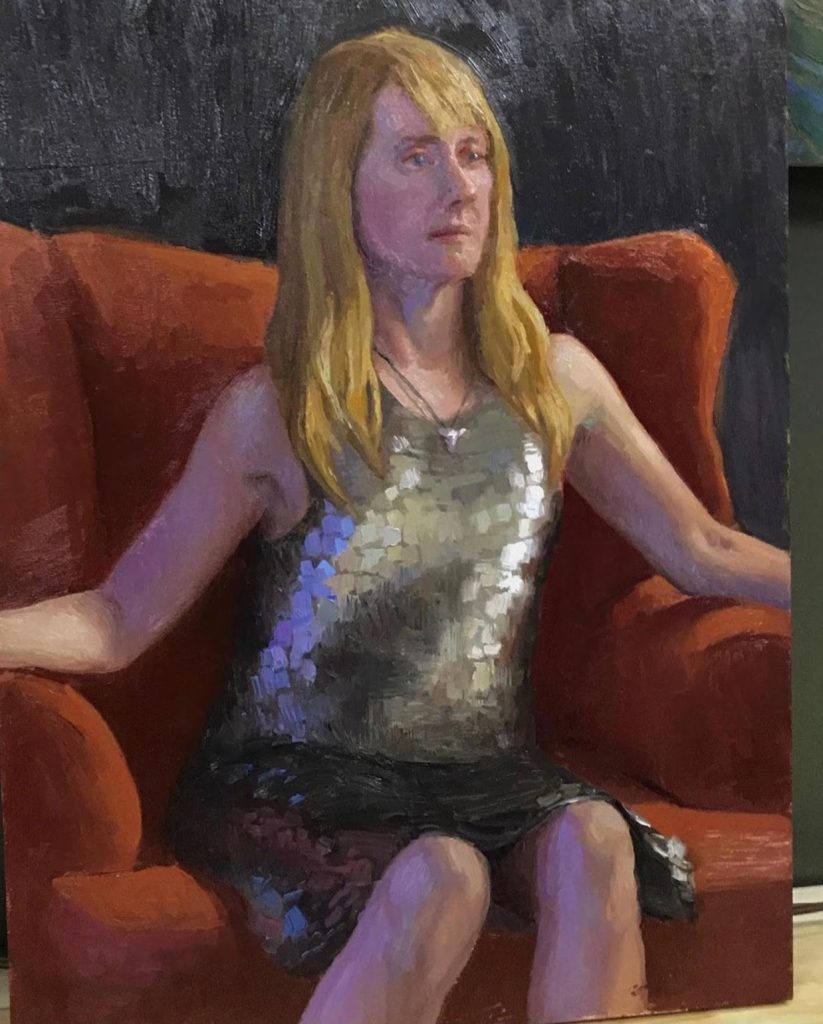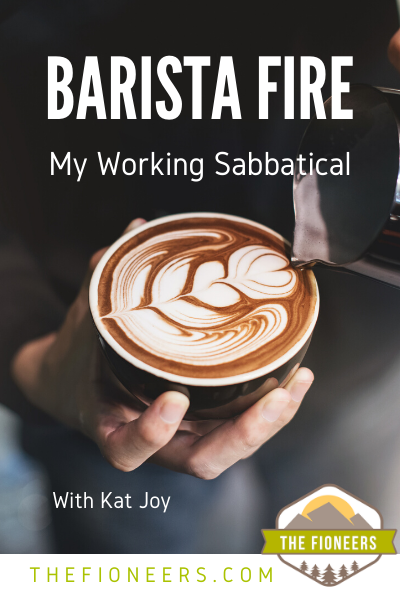
Sometimes, I get comments that say things like, “The only reason you can work part-time or pursue Coast FI is that you still have a spouse that works full time.” Sometimes, I even get the snarky comments saying that I’m not pulling my own weight in my marriage or that “the best passive income is having a spouse that works full time.”
I suspect that many of these comments come from people who don’t actually read my blog or understand the math behind financial independence or Coast FI.
What these people don’t realize is that my part-time income could still cover significantly more than 50% of our shared expenses. On top of this, we also have enough money already saved in our retirement accounts that we technically only need to cover our actual costs of living.
So, Mr. Fioneer could scale back his income significantly right now if he wanted to. He doesn’t yet, so we’re still saving a significant portion of our combined incomes. I’m sure a day will come when he wants to scale back, and at that point, we’ll be more than capable of doing so.
When I met Kat Joy a few months ago, I knew I needed to do a Slow FI interview with her. Kat reached Coast FI before the age of 50 as a single woman who has never earned a six-figure salary.
This Slow FI interview is for all of the people who don’t think it’s possible to reach Coast FI without a high income or a spouse who still works.
Kat is truly an example of someone who has figured out what she wants. She is also continually testing out new ideas to continue designing her ideal life along the way.
Within the last year, she has transitioned from full-time work to what she calls her “working sabbatical.” Some people in the FI community might call what she’s doing Barista FIRE. She now has the freedom to choose to only work fun, part-time jobs that feel useful to her.
Let’s get into the interview.
1. Tell us a little bit about you.
I am a former government professional who became disenchanted with my work mid-career. However, I couldn’t leave because of all of the usual reasons: mortgage, health insurance, bills, etc.
When my significant other had a medical emergency, that was my wake up call. It showed me how little flexibility my work provided to care for those I loved if they were in a crisis. After this happened, I created a plan to free myself from the necessity of full-time work.
Now, seven years after that epiphany, I am choosing to work only fun jobs in my 50s. I’m making just enough to cover what I need, and I have variety, flexibility, and no more feelings of being trapped.
I call these years my “working sabbatical.”
2. Can you tell us more about your decision to pursue Barista FIRE?
Let’s start at the beginning. After going to college, I landed a job with the federal government and got to work.
In my late 20’s, I had a health setback that kept me from being able to handle full-time professional work. During this time, I cobbled together simpler jobs and side gigs to make ends meet. For these 2 years, I paid the bills by cleaning houses privately, driving shuttles, becoming a short-order cook, art modeling, and anything that was not too stressful or technical.
Eventually, I was able to re-enter the full-time workforce again, but I found that I missed the variety.
When I turned 40, I had a mid-life crisis. I decided to rid myself of all toxic relationships and began being more true to myself.
The only toxic relationship I had left was with my full-time job. Since I had done this job for 10 years, I was good at it and very efficient. I could have done the full job in half the time. But, I had a toxic boss, and I didn’t really enjoy it.
The pay and benefits were decent, so I stayed.
In 2013, my long time boyfriend was in a severe vehicle accident that left him hospitalized for several months. Whenever I wasn’t working, I was dealing with insurance, medical bureaucracy, the policy, the DMV, the bank, and caring for two households (his and mine).
One short week after the accident, my boss called me into her office. She said, “I understand things are hard. But, I really need you to have your ‘head in the game’ while at work.”
I couldn’t believe it. I sat there seething, but I knew I couldn’t leave my job financially.
At that moment, I resolved to work and save so that by age 50, I wouldn’t ever feel trapped in any job again.
Once things settled down with my man (who is doing great now, hooray!), I began in earnest to plan my own release from the trap of necessary full-time work. I dubbed it “The Plan.” By 2019 (age 50), I would be free to take only fun, flexible jobs, until I reached my true retirement in my 60s.
The first crucial step in actually making “The Plan” a reality was believing that I would be okay if my income went down. I had saved and reached Coast FI. Plus, I’ve always been a productive person, so I knew that if I needed to earn more, I could.
3. What did your life look like before the transition to Barista FIRE? What does it look like now?
When I had to work full-time professionally, I got so frustrated by inefficiency. I could get my job done in half the time, but I still had to be there regardless. I couldn’t take leave without approval, and I had to slowly and painfully ‘save up’ vacation hours. I longed for some freedom in my schedule.
I also hated my job. Because I needed the money, I stayed in the profession because I knew my experience would allow me to get decent pay.
However, after experiencing the freedom, variety, and fun of many lower-paying jobs from my late 20s, I longed for it again.
Now, I can seek out and try jobs that sound fun. I love variety, doing things, and being helpful or useful. The jobs that pay the least are often the jobs I enjoy most.
Now, I’m doing a variety of work and projects:
- I’m a fill-in at a natural food store
- I have a side gig cleaning people’s houses
- I sit as an art model for figure drawing classes at the college or for private artist groups
I love these jobs because they are flexible, useful, and provide meaning to me personally.
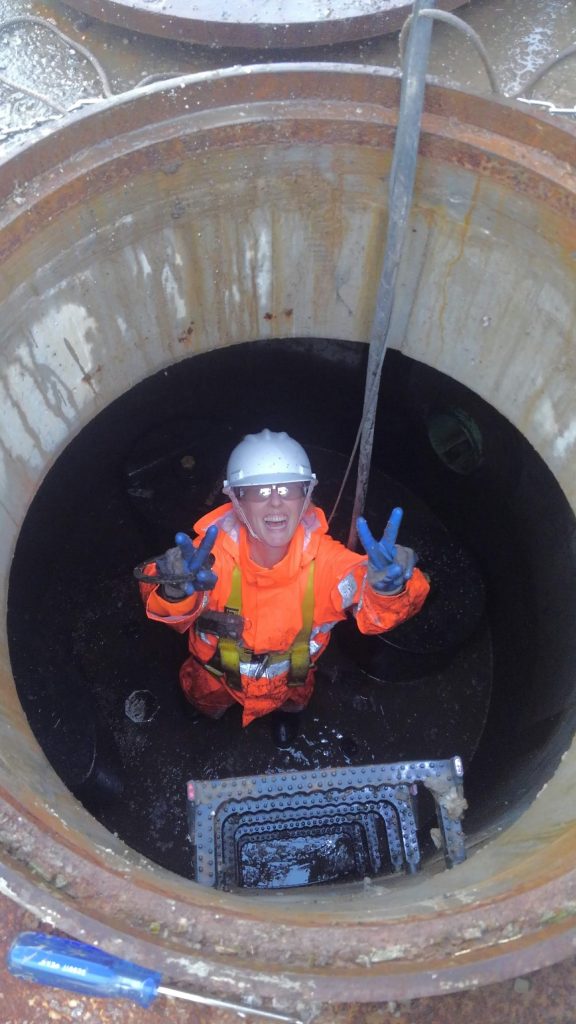
I supplement these fun and useful (but lower-paying) jobs with 6-8 months per year of seasonal work with my city’s public works department. It pays enough that I can save most of it and use that toward my expenses.
Last year, I made about $24,000 from my ‘base” part-time job with the public works department and about $10,000 from the other fun jobs. My expenses are around $1,500-2,000/month, so I still have some extra.
While I still need to work for income, I have the ability to change jobs when they no longer work for me. I no longer feel trapped.
4. What enabled you to make the decision to pursue Barista FIRE?
There were some crucial things that had to happen before I felt like I could make this switch to ‘fun jobs only’.
First, I needed to save enough to cover my basic standard of living in retirement. For me, that meant working full time or more (except for during the health setback in my 20s) until I was almost 50. The health setback years and divorce both affected my savings.
The second crucial thing was becoming debt-free. Once I decided to pursue “The Plan,” I started throwing all surplus funds toward paying off my house since I didn’t have any other debt. I paid off the house in 5 years at the age of 48.
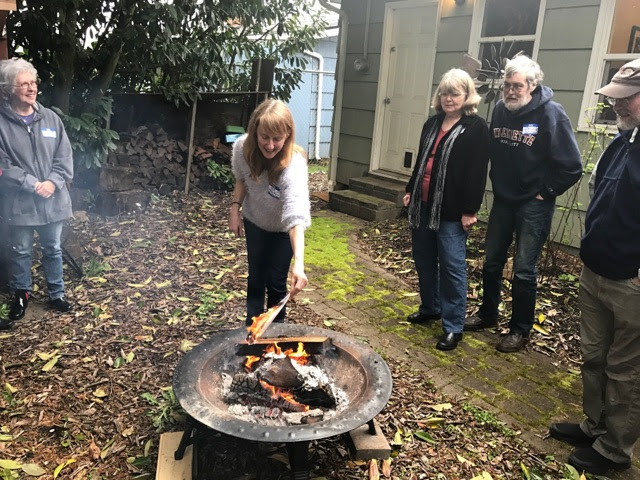
Without a mortgage payment, I could live on $1,500/month, including covering my own health care costs through Liberty Health Share. I shoot for $2,000 of earnings each month so that I have some extra.
There are other life factors that contributed to my ability to downshift.
I was married to a very frugal man for almost 20 years. I don’t have kids which means I had lower expenses and more time for side gigs. I am able to travel cheaply with my boyfriend, friends, and family. Sometimes if I do the legwork of planning the trip, my family will bring me along at no cost to me. If I visit a friend on Oahu, I stay with her for free.
5. Are you worried about running out of money in traditional retirement?
I got a lot of help from my mentor and coach, Jillian Johnsrud, on this one. Most women worry about someday being homeless or out of money in old age. Because I have no husband or children, I know that my finances need to be even more solid.
However, I’m not as worried as I used to be. I’ll be keeping an eye on my finances as I go. If things don’t go well with the stock market, I can always start full-time work again if I choose.
My tastes are simple and inexpensive. My monthly expenses are low. I like to stay busy with fun jobs. If I take all of these things into consideration, I think the money side of retirement will be fine.
I’d rather have some fun and flexibility in my 50s and have a simpler retirement. This is much better for me than continuing to work a job I hate for 10-15 more years just to die an old woman who doesn’t like spending money anyway.
I also use financial planning software called OnTrajectory. This program allows me to plug in my numbers to create scenarios. I can change growth rates, income levels, and expenses to see how long my funds will last.
Because of all of this, I feel confident in my decision.
6. Was there anything you needed to adapt in your life to make this new Barista FIRE lifestyle work?
I’ve focused a lot on testing and experimentation.
I have taken jobs I thought would be perfect for me and, later, discovered that the reality was different from what I had envisioned.
For instance, the first fun job I chose after quitting my full-time job was to work part-time for a small nonprofit where I had been a volunteer. I quickly discovered that nonprofit work is intense and employees need to set very good boundaries around work. If they don’t, they tend to burn out quickly. I didn’t want to set such strict boundaries, so after about 9 months, I gratefully handed my hours over to someone new.
Regardless of how it turned out, that experience was valuable. By doing that job, I know a lot more about a whole segment of employment. I learned that a “location independent” nonprofit job can easily require you to be always ON. This made it feel impossible to have a life.
I care deeply about the mission, and my life became the mission. I learned a lot of lessons during that time about what’s important to me and ensuring that I don’t let other relationships suffer.
Another thing I’ve had to adapt is my own understanding of who I am and what I like. I’ve discovered that a lot of what I thought was my ‘nature’, my likes and dislikes, were actually more situational. They changed once my situation changed.
For example, I’ve always volunteered with nonprofits I care about. I thought that was a big part of my identity. I took a lot of pride in this.
Once I left full-time work and started doing fun jobs that were useful, my need to “go be a good person” by volunteering tapered. I still volunteer, but I am no longer driven to volunteer all the time just to feel okay with myself. I now realize that volunteering was a virtuous reaction to doing work that felt useless.
7. What were the greatest benefits of downshifting to Barista FIRE?
I think the greatest benefit of working multiple fun jobs is flexibility. For me, it wasn’t about working less. I wanted variety and flexibility.
I hated to be forced to be at work for 40 hours to get paid, even if I could get the work done in half the time.
The biggest internal driver for me was feeling trapped. I wanted to be available if a friend or family member needed help. I know my parents are getting older, and I wanted to be in a place where I can be available to them if they need me.
Now that I’ve switched to pursuing Slow FI when I consider a new gig, I think about how good that job would be if I needed to be a caretaker. For instance, housecleaning (privately as a business) is a great type of work because it can be done according to your schedule, it can be scaled up and down as desired, can be done anywhere, and the pay is great for a side gig.
8. How did your pursuit of FI help or hinder this decision?
In some ways, it has helped, and in others, it’s hindered my decision.
I’ve been able to make this transition because I’ve saved religiously for retirement since early in my career. While I have never made much money, I was always plugging away at retirement savings, paying down debt, and learning to live simply.
However, because I was so focused on saving and investing, it was hard to get to a point where I felt comfortable no longer saving and investing (and no longer getting the mental boost it provided). I worked with a coach who helped me take the leap to leave a decent paying job and coast the rest of the way to FI.
I also realized that I enjoy working and earning money if it’s flexible and on my terms. I spent the first year of my Barista FIRE working more hours than previously. It was all fun, and I liked keeping busy and feeling useful. Then, I had a period of time where my seasonal job was finished, and I was laid off from one of the part-time jobs. There were 3 months, where I had very little work, and I missed it.
I now see that I may want to continue paid work, as long as it’s part-time and flexible, well into my 60s. I love keeping busy, having variety, and income, even if the dollar amount is small.
Even though I’ve “arrived” in my fun jobs decade, I still pay attention to how things work for me and continue to adjust to make things work better and better.
9. What advice do you have for someone considering a similar decision?
I’d recommend working with a mentor or a coach to help you understand more about your motivations and the fears that a shift might bring up. I needed support to get over the “One More Year” syndrome.
I’d also recommend doing a good review of your numbers. You could use a (fee-only fiduciary) financial planner or software like OnTrajectory. This will help you feel confident that you’ve planned correctly for the change in income.
I loved using On Trajectory because I could run scenarios with different income and expenses. I could vary the age at which I began to touch retirement accounts and even change the expected growth on each account. It showed me exactly how much I needed to earn in my 50s to cover my bills and still have a comfortable retirement.
Thank you, Kat, for sharing your story with us!
Most of us can identify with a point in time where we feel “stuck.” We don’t want to keep doing what we are doing. Yet, we need income, so we stay. Many times this is precipitated by a personal health issue or one of a family member. Oftentimes, people decide that retiring early is the next best thing.
I love Kat’s story because she didn’t accept that alternative blindly. She figured out what would be the most optimal solution for her, given her circumstances and what she enjoys doing. She knew that she enjoyed working. She just wanted to have more freedom and flexibility to travel and take care of family, when needed.
Another thing that we can learn from Kat’s experience is her focus on testing and experimentation. What she wants to do is always evolving. She thought she’d enjoy working in a nonprofit. When she didn’t, she decided to move on. She also realized that she enjoys working on her terms, so she wants to keep doing it well into her 60s.
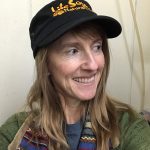
Barista FIRE might not be for everyone. What’s most important is that we each figure out what we uniquely value and write our own life script.
Even though Kat doesn’t have an online presence, you can still connect with her by email: i_am_kat@yahoo.com.

